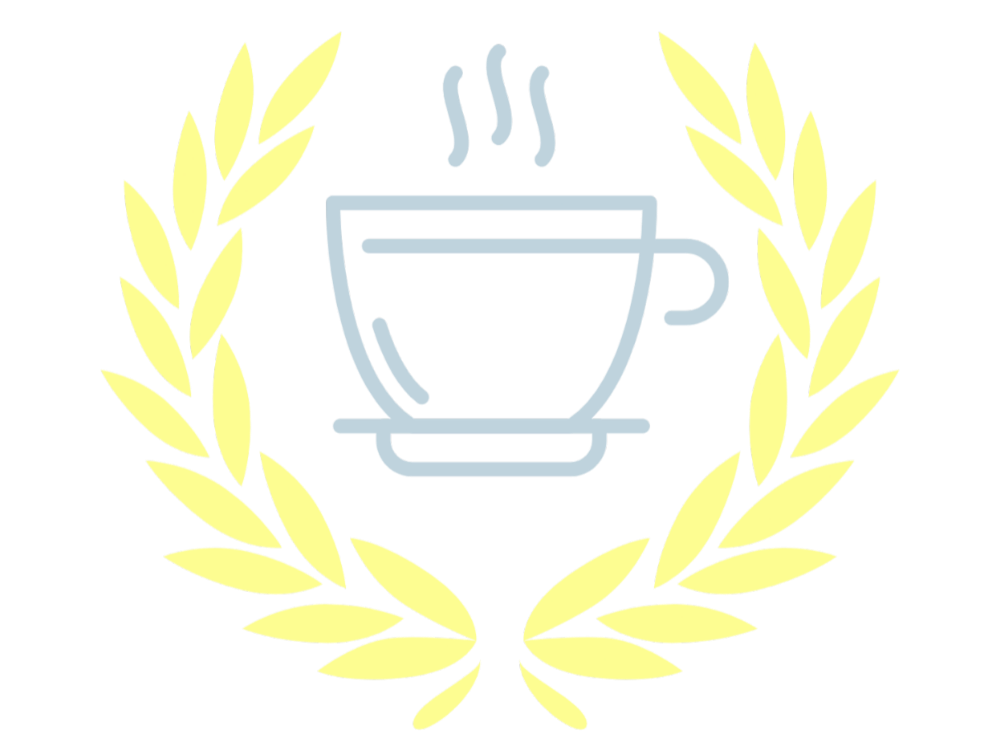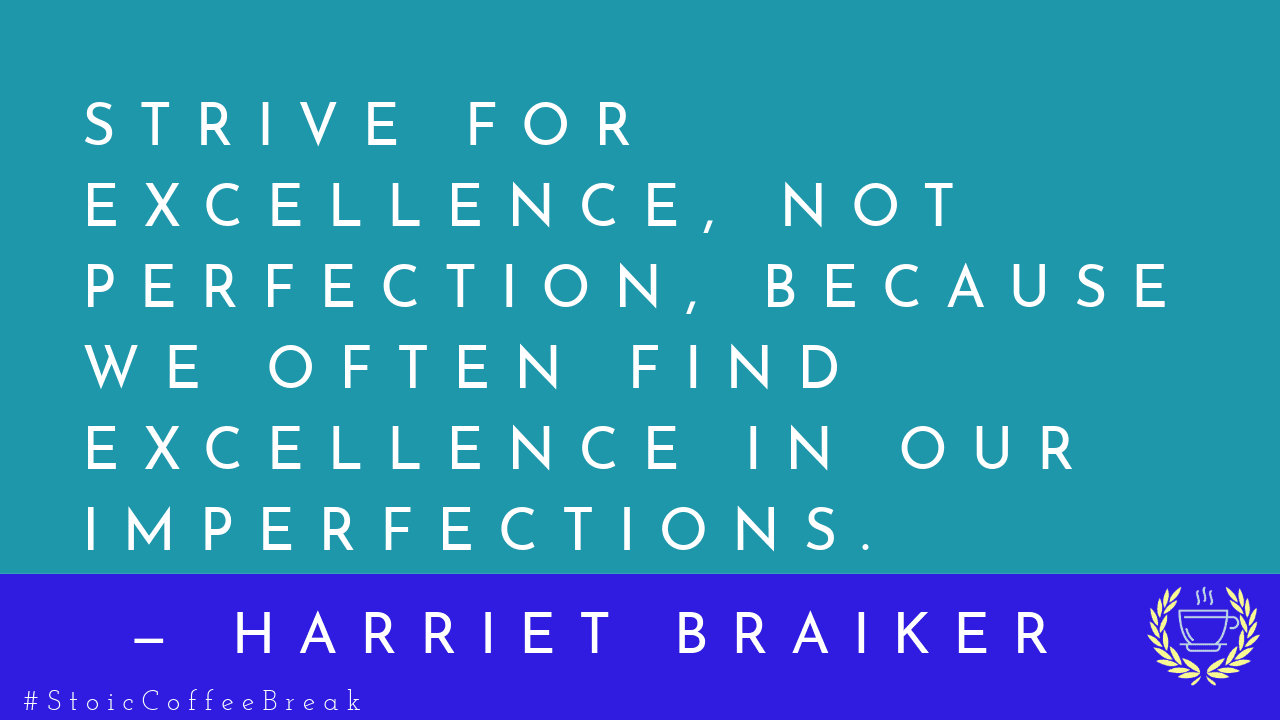
Do you think that you have strengths and weaknesses? What if I told you that you don’t? Today I want to talk about how strengths and weaknesses are all a matter of perspective and context.
"Strive for excellence, not perfection, because we often find excellence in our imperfections."
—Harriet Braiker
Attributes, Characteristics, and Context
We all have things about us that we think of as strengths and weaknesses. Maybe it’s certain abilities or behaviors that we have that we’re proud of and others that we’d rather put in a shoebox and hide in the attic and hope that nobody will find them, especially ourselves. But what if we’re wrong about thinking of ourselves this way? What if it’s the way that we perceive these things that cause us so much self-doubt and anxiety?
The other day I was listening to a podcast interview with Simon Sink, and he said something that really hit me like running into a brick wall. He said:
“I hate the conversation about what are your strengths and what are your weaknesses because everything requires context. You don’t have strengths or weaknesses, you have characteristics and attributes. And in the right context, those are strengths, and in the wrong context, in the wrong environment, those are weaknesses. Always. So it’s better to know who you are and look for environments where those things are advantages.”
And while this is something that I’ve always known, but either I was just in the right mindset, or just the way that Simon put it, or probably both, made me stop the video and think about that idea for a minute. What if we’ve been going about this all wrong? What if rather than looking at your so called weaknesses as that, weaknesses, and just started viewing them as something more neutral that is helpful in one context but not in another?
Simon then later give an example about how if he had to work on a project alone, he would either create something of very low quality or the stress it would cause would take a toll on his health because he works better in teams. He knows that he functions far better surrounded by people that are able to help him because that’s one of his attributes—leading and working with a team.
Shifting Perspective
"The impediment to action advances action. What stands in the way becomes the way."
— Marcus Aurelius
"Everybody is a genius. But if you judge a fish by its ability to climb a tree, it will live its whole life believing that it is stupid."
— Albert Einstein
The Stoics teach us a crucial lesson about perception. They tell us that the quality of our lives is determined not by what happens to us but by how we choose to see it. In other words, our strengths and weaknesses are two sides of the same coin; In every weakness, there lies a strength.
So, let's apply this wisdom to our own traits, shall we? Let’s turn the lens and view our characteristics in a new light, discovering how what we see as vulnerabilities might actually be veiled virtues. Let’s take some common characteristics and attributes that some of us have and reframe them to see where these traits might be just the thing to help us find success and find little more happiness by just being ourselves.
The Overthinker
Let’s say that you have a tendency to to overthink things. Maybe your mind spins like a hamster on a wheel and you find yourself going down rabbit holes when you get focused on an idea. While this may cause some frustration, distraction, and sleepless nights, in contexts that require detailed planning and foresight, the ability to think of all possible outcomes becomes a gift that helps avoid possible pitfalls and see opportunities that we might have missed. Overthinkers are the ones that leave no stone unturned and help us chart the optimal path forward.
The Introvert
"There is a great strength in being silent and listening; this is where the roots of empathetic leadership grow."
— Susan Cain
Often, introversion is seen as a social setback, but what if I told you it’s actually your stealthy strength? In a world that can’t stop talking, the quiet among us are the Olympic-grade listeners. Stoicism urges us to value the power of listening—a skill that’s absolutely golden in relationships, counseling, and leadership. While everyone else is trying to be heard, you’re absorbing, understanding, and, ultimately, wielding the power of knowledge.
Introversion is often mistaken as a barrier to leadership and dynamism, but it actually holds within it the seeds of empathetic leadership. Introverts, with their preference for deep thought and meaningful one-on-one connections, can be uniquely positioned to lead with empathy, understanding, and a keen ear for listening. In an age where leadership is evolving beyond the loud and charismatic, the introverted leader builds teams that feel seen, heard, and valued.
The Risk-Averse
Playing it safe is often frowned upon, especially in our “go big or go home” culture. But let’s turn the tables and look at it through a more Stoic perspective. The risk-averse individual, those who prefer the known paths to the potential perils of uncharted territory. While often criticized for a lack of boldness, their cautious approach makes them the conscientious conservators of our world. They’re the master of calculated risks, and their cautious approach gives them the ability to foresee and mitigate risks, to plan with thoroughness and care.
In situations that demand thorough risk assessment—like financial investments, legal strategies, or safety protocols—this so-called weakness becomes the cornerstone of wisdom. Where others gamble, the risk-averse navigate with a map and a compass, turning potential pitfalls into well-navigated journeys. It is not the boldness of the steps we take, but the soundness of the path we choose that ensures our progress.
The Stubborn
“Our greatest glory is not in never failing, but in rising up every time we fail."
— Ralph Waldo Emerson
Stubbornness gets a bad rap, often seen as the refusal to be flexible. Yet, under a different light, this so-called stubborn streak can be a laser-focused determination. When channeled correctly, it becomes the relentless drive needed to bring projects across the finish line or to stand firm in one’s values against peer pressure. An unwillingness to quit when things are tough, and having the strength to persevere can be the thing that helps you succeed when others other abandon ship. When others dither or flip-flop, being a stubborn yet principled person can help you be the lighthouse, guiding ships with unwavering conviction.
The Daydreamer
Caught daydreaming again? Instead of scolding yourself for not having both feet on the ground, consider this: Some of the greatest inventions and artworks were born from minds that dared to drift. Stoicism teaches us the value of perspective, and the daydreamer’s perspective is one that reaches beyond the immediate horizon. In roles that demand creativity and innovation, the daydreamer is king. While others see what is, the daydreamer sees what could be, painting the canvas of the future with strokes of imagination.
The Procrastinator
Next up, procrastination – the thief of time, or so they say. I certainly fall into the category of being a procrastinator, and find it challenging to get things done early even though I know it would be lot less stressful. I get distracted easily, because I’m so interested and curious about so many things. Yet, what if I told you that the habitual dawdler is actually a creative strategist in disguise? Procrastination can be the brain’s way of allowing ideas to marinate, leading to bursts of innovation and creativity. When the deadline looms, I often pull out solutions that a more time-efficient approach might never have uncovered. Here, the eleventh-hour rush becomes a crucible for brilliance.
Embracing Who You Are
"The gem cannot be polished without friction, nor man perfected without trials."
— Chinese Proverb
So, how do we apply this Stoic reframing, turning perceived weaknesses into strengths? It starts with a shift in perception. Instead of labeling our traits as inherently good or bad, we view them as tools in our kit, each with its moment to shine.
1. Context Is Key: Before you judge a trait as a weakness, ask, “In what context might this be a strength?” This is where the virtue of wisdom comes into play. Think of your traits as tools that need to be used in the right situation. Remember, a spoon might seem like a weak choice for cutting steak—until you’re served soup.
2. Balance Your Portfolio: Just like a savvy investor diversifies their portfolio, diversify your traits. Lean into your strengths, but don’t shy away from those so-called weaknesses. They’re your hidden assets.
3. Reframe Your Narrative: Stoicism teaches us the power of our internal narrative. Change yours to highlight the positive aspects of your traits. “I’m not shy; I’m a master listener.” See? Sounds cooler already.
4. Experiment and Observe: Life’s the lab, and you’re the scientist. Experiment with leaning into your different traits in various contexts. Observe the outcomes. You might be surprised at what you discover.
5. Vive la Différence: Appreciate your differences and don’t compare yourself with others. We all have different traits that make us better at some things than others. We need the differences to make a more complete, interesting, and dynamic world. If we were all exactly the same, the world would be a very uninteresting place.
6. Embrace Growth: Finally, remember that growth is a Stoic’s game. Your traits aren’t set in stone. They’re malleable, capable of being honed into sharper, stronger versions of themselves.
Conclusion
In the grand tapestry of our life, each thread—each trait and characteristic—plays a role in the larger pattern. What we perceive as weaknesses are often strengths waiting for their moment in the spotlight, asking for a change in perspective and a bit of Stoic wisdom to shine.
So, the next time you catch yourself bemoaning a personal flaw, remember the Stoic. With a bit of context, creativity, and a shift in perspective, you can turn that flaw into your signature strength and most prized asset. After all, in the grand scheme of things, it’s not about the cards you’re dealt; it’s about how you play the hand.
Hello friends! Thanks for listening.
Want to take these principles to the next level? Join the Stoic Coffee House Community!
Stop by the website at stoic.coffee where you can sign up for our newsletter, and buy some great looking shirts and hoodies at the Stoic Coffee Shop.
Like the theme song? You can find it here from my alter ego. 🙂
Find me on instagram, twitter, or threads
Lastly if you know of someone that would benefit from or appreciate this podcast, please share it. Word of mouth is the best way to help this podcast grow.
Thanks again for listening.





